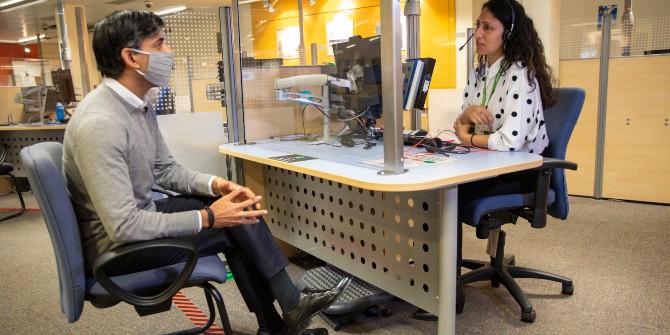Mohammad Nurunnabi explores how COVID-19 exposes the challenges to corporate governance practices in emerging economies, in particular AGMs, executive pay, audit committee, and disclosure. Despite the enormous challenges COVID-19 poses, he argues it should be seen as an opportunity for reform of their corporate governance structure.
According to WHO (2020), the private sector may play a critical role in the preparedness and response activities for COVID-19 locally and globally. The impact of COVID-19 on global corporate governance is also addressed in the recent report published by the OECD (2020). The costs and benefits of the adoption and implementation of corporate governance in developing countries are still contested in the literature (Nurunnabi (2016). On the benefits side are companies’ growth and value creation, high-level financial performance, and foreign direct investment. On the costs side is the fact that the Western model is not suitable and is, to some extent, irrelevant to the context of developing countries, due to specific politico-institutional settings.

Political economy theory suggests that Anglo-Saxon model of corporate governance (CG) may be hard to implement because of: (a) family ownership and the absence of an independent director, (b) political business operations, (c) corruption and the lack of enforcement, and (d) supranational agencies’ (World Bank, IMF, ADB etc.) continual intervention. For instance, according to Ozery (2020), “Politicized corporate governance system in China counters some of the forces that persistently jeopardize economic outcomes and that “conventional” corporate governance institutions failed to cure, such as abuse by corporate insiders, mounting corruption, local protectionism, and state capture”.
Yet while the COVID-19 pandemic is hitting developing countries as much as developed economies, companies in the region need to be more resilient and strive to implement good governance practices that have been now made more difficult. The impact of COVID-19 on corporate governance is fourfold:
Annual General Meetings: Holding Annual General Meetings (AGMs) during the COVID-19 pandemic is challenging, because of national lockdowns. Many countries extended these periods (e.g. Netherlands, Portugal, Russian Federation, Singapore, Spain and the UK). Some countries encouraged remote participation for conducting AGMs (e.g. Austria, Czech Republic, Italy, Poland). For instance, the Chartered Governance Institute in London has now published guidance which reflects UK company law and gives a number of options for organisations to consider with respect to the impact of COVID-19. The government or professional bodies in developing countries should also provide such guidelines and offer advice on how to ensure that the meetings are quorate, who should chair them, which directors are allowed or expected to attend, and where to hold them in the event of the planned venue being unavailable or otherwise inaccessible.
Executive Pay: Due to significant business decline, existing executive pay will be questioned by the shareholders. Remuneration committees must adjust the balance between employees’ and executives’ pay. There should be guidelines about this from the Securities and Exchange Commission (SEC), which could be emulated by companies in developing countries. The guidelines should include how to review pay and incentive rewards for senior executives. The shareholders will have more confidence in companies if there are pay reductions for executives in order to support their employees.
Audit Committee: One of the major challenges for an Audit Committee of a company during COVID-19 is transparency and management of uncertainty. Many companies’ financial statements submissions have been delayed – by 62 countries as of 20 June 2020 (Global SME Policy Network – GSPN, 2020). Audit committees should work virtually and evaluate the impact on internal control over financial reporting. Audit committees should consider the following issues during this pandemic:
- Monitoring impact on profitability, cash flow, capital preservation, and balance sheets
- Monitoring any changes in the operation of internal reporting structures (e.g. risk, HR, legal, compliance)
- Material issues reported to the board
- Identifying early signs of financial stress, going concerns, accounting estimates, and events occurring after the reporting period (IFAC, 2020).
Disclosure: The key disclosure challenge is the IAS 1 Presentation of Financial Statements, which requires management to assess a company’s ability to continue operating. One of the major areas affected by COVID-19 is risk oversight, such as measuring expected credit loss assessments (ECLs) under IFRS 9 Financial Instruments. Companies will have to update their forecasts and provide sufficient disclosures to alert investors about underlying financial conditions. According to IFAC (2020), the COVID-19 crisis and its economic effects mean that investors and other stakeholders need high-quality financial information more than ever. This is also because investors are increasingly asking for more forward-looking information and disclosures.
I have argued before that although many emerging economies have been adopting the Anglo-American model of CG, for historical reasons, they lack the capacity and robustness to tackle local challenges (2016). The adoption of western CG in India was encouraged by a combination of global political pressures. Like India, many emerging economies are former British colonies and their regulations are predominantly based on the British common law system. Yet legal institutions that impact financial development are also affected by a country’s political institutions. Furthermore, in many emerging economies, civil society engagement also influences corporate governance systems. Still, while many see COVID-19 as a challenge, developing countries need to see it as an opportunity. It is vital that they do not fall behind with the implementation of corporate governance.
This post represents the views of the author and not those of the COVID-19 blog or LSE.






This is an excellent article, I would like to include some points in technical perspective. A company grow up with standard process and policies. Adoption standard process and policy also increase company operational expenditure. Maintaining process has required additional human expertise and sometimes delay of service delivery due to so many approval has required. Small and medium company should follow their own process which is suitable for their business type. COVID-19 already create huge business gap and many large company have been suffering to survive. Many of them can’t be survived unless government fund them. Business gap will help small & medium company to grow up. If they can adjust themselves in the gap take advantage from it.
Technology is the key elements to run a business in the global market. Company should adopt Enterprise Resource Planning (ERP) system to traces the work flow. It will provide overall business dashboard , business owners to analyze data take best decision. In order to cut down operational expenditure business owners should get their jod done from BPO (Business Process Outsource) market. They can save up to 40% operational cost.
Sayed Ahmed
Nazrul Academy – Riyadh
Very good read. Thanks to the author.
I do agree that one of the main challenges of CG of its nature of owernership- family owernership. Another big challenge is lack of true independence of independent directors in the company. Independent directors are selected in way that they either do not have power raise issue or do not want to perform their due role intentionally. Because most of them are either family friends or childhood friends of directors.
Nazrul Islam Chowdhury ACS
Bangladesh